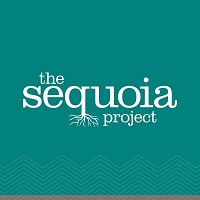 Electronic health data sharing speeds disability decisions for veterans
Electronic health data sharing speeds disability decisions for veterans
The eHealth Exchange (@eHealthExchange), an initiative of The Sequoia Project (@sequoiaproject), celebrated Veterans Day powering the launch of a Social Security Administration (SSA) and Department of Veteran Affairs (VA) health IT initiative to speed disability determinations for veterans by enabling all Social Security disability case processing sites to receive medical records electronically from all VA facilities.
“VA is currently improving quality of life by enabling Veterans to share their health information with federal partners and integrating their data into a safe and secure health-related consumer application,” said Dr. David Shulkin, Under Secretary for Health of the Department of Veterans Affairs. “Currently, when eligible Veterans apply for Social Security Disability Insurance benefits the average wait time for Social Security to receive paper records from VA can take months; this partnership allows Social Security and VA to share the Veteran’s health information electronically in minutes. The Social Security and VA partnership allows VA to continue to be a leader in interoperability efforts among federal partners while improving overall quality of life for our Veteran patients.”
Earlier this year, the Department of Defense’s Military Health System (MHS) and the eHealth Exchange expanded cooperation to enable electronic health data sharing for more than 9.4 million active duty service members, veterans, retirees, and families served by the MHS. This initiative provides medical professionals at partner healthcare organizations in the private sector with a secure view of health records for all TRICARE beneficiaries to support better care decisions, unless a patient chose to opt out. Additionally, MHS patients do not have to hand-carry copies of health records when seeking care from partner providers.
“The military population has unique care needs due to their types of injuries as well as the mobile nature of deployments,” stated Michael Matthews, eHealth Exchange Coordinating Committee Member and Board Chair for The Sequoia Project. “Regardless of what a patient is being treated for or where they are being treated, collaboration with the private sector via the eHealth Exchange helps deliver effective care for veterans, servicemen and women as well as their families.”
The largest health data sharing network of its kind, the eHealth Exchange network includes participation from nearly 50% of all U.S. hospitals, four federal agencies, more than 31,000 medical groups, more than 3,400 dialysis centers, and more than 8,300 pharmacies, such as Walgreens and CVS MinuteClinic. The eHealth Exchange is already the principal way that private sector healthcare providers are able share health information with federal agencies to support patient care and increasingly between and among federal agencies.
Being able to share health records with non-military health facilities is critical to effectively care for military personnel and their families. This is illustrated by the fact that in 2015, roughly one-third of outpatient and 40% of inpatient care for MHS beneficiaries was provided by private, non-military care providers. Approximately one-third of MHS prescriptions were filled in the private sector as well.
About eHealth Exchange
The eHealth Exchange is a rapidly growing health data sharing network for securely sharing clinical information over the Internet nationwide. The eHealth Exchange spans all 50 states and is the largest clinical health data sharing network of its kind in the US. Current eHealth Exchange participants include large provider networks, hospitals, pharmacies, regional health information exchanges and many federal agencies, representing more than half of all U.S. hospitals, tens of thousands of medical groups, more than 8,000 pharmacies and 109 million patients.
About The Sequoia Project
The Sequoia Project is a non-profit, 501c3, public-private collaborative chartered to advance implementation of secure, interoperable nationwide health information exchange. The Sequoia Project supports multiple, independent health IT interoperability initiatives, most notably: the eHealth Exchange, a rapidly growing health data sharing community of exchange partners sharing under a common trust framework and a common set of rules; and Carequality, which is a national-level, consensus-built, common interoperability framework to interconnect and enable exchange between and among existing data sharing networks, much like the telecommunications industry did for linking cell phone networks.
